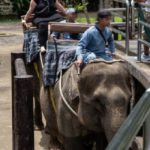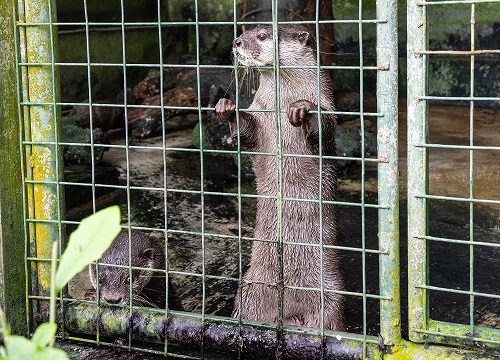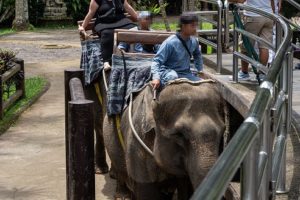 The idyllic island of Bali, a long-beloved destination for travellers across the globe, is under scrutiny following a distressing revelation about its wildlife entertainment industry. A recent investigation has unveiled a darker side to the picturesque paradise, exposing the torment endured by over 1,300 wild animals exploited for tourist amusement. The findings have raised critical concerns about animal welfare, ethical tourism, and the urgent need for industry-wide reform.
The idyllic island of Bali, a long-beloved destination for travellers across the globe, is under scrutiny following a distressing revelation about its wildlife entertainment industry. A recent investigation has unveiled a darker side to the picturesque paradise, exposing the torment endured by over 1,300 wild animals exploited for tourist amusement. The findings have raised critical concerns about animal welfare, ethical tourism, and the urgent need for industry-wide reform.
The groundbreaking “Holidays that Harm” report, led by global wildlife charity, World Animal Protection, discloses that many animal-based entertainment venues across Bali and its neighbouring island, Lombok, fail to meet even the most rudimentary needs of their captive wild animals. The animals, including elephants, orangutans, and dolphins, live in substandard conditions, with many deprived of basic necessities such as proper nutrition, space, and social interaction.
While increasing numbers of travellers are seeking responsible and ethical tourism alternatives, the report accuses some of the globe’s leading tourism operators of promoting low-welfare wildlife venues in Bali. The charge reveals an alarming gap in these companies’ policies, failing to prevent the profit generated from animal cruelty within the media and attractions they endorse.
The investigation, which involved an assessment of 34 venues, aimed to present an up-to-date portrayal of wildlife welfare in the industry and identify any modifications since World Animal Protection’s earlier evaluation in 2017. The prior investigation instigated notable change, prompting major travel conglomerates like Helloworld and Flight Centre to remove the criticized venues from their offerings and cease the promotion of elephant riding entirely.
Suzanne Milthorpe, Head of Campaigns at World Animal Protection, commented on the results of the investigation, stating, “What may seem like an island paradise for tourists is, in reality, a captive nightmare for more than a thousand wild animals trapped in horrifying conditions across wildlife entertainment venues in Bali and Lombok.”
Milthorpe spoke of the unsettling reality behind the scenes, with many of these animals forcibly separated from their mothers as infants and subjected to brutal and intensive training to ensure their ‘safety’ around tourists. The investigation documented wild animals suffering for the sake of tourist selfies, a cruel spectacle driven by consumer demand and travel companies’ absence of ethical policies.
Milthorpe underlined the urgency of confronting these issues, stating, “While we are witnessing a global shift in attitudes towards wildlife entertainment, the complications of over-tourism, misleading conservation claims from venues, and a lack of robust travel company policies make it difficult for tourists to choose options that align with their values.”
She also guided potential visitors, advising, “As a good rule of thumb – if you can ride, hug or have a selfie with a wild animal, there is cruelty involved, so don’t do it.”
Echoing her sentiments, the report called upon the tourism industry to assume responsibility for the activities they promote. The World Animal Protection Organization advocates for a future where tourism is responsible, sustainable, and does not contribute to wildlife cruelty. They’re also urging governments to introduce breeding bans, ensuring the current generation of captive wild animals is the last to endure this tragic fate.
The investigation’s findings highlight tourism’s extensive role in wildlife exploitation, calling for collective effort and stricter measures to transform the industry. As the world recovers and rebuilds in the wake of the global pandemic, it is incumbent on everyone – from industry leaders to individual tourists – to contribute to a more responsible tourism landscape.
Written by: Jason Smith

















